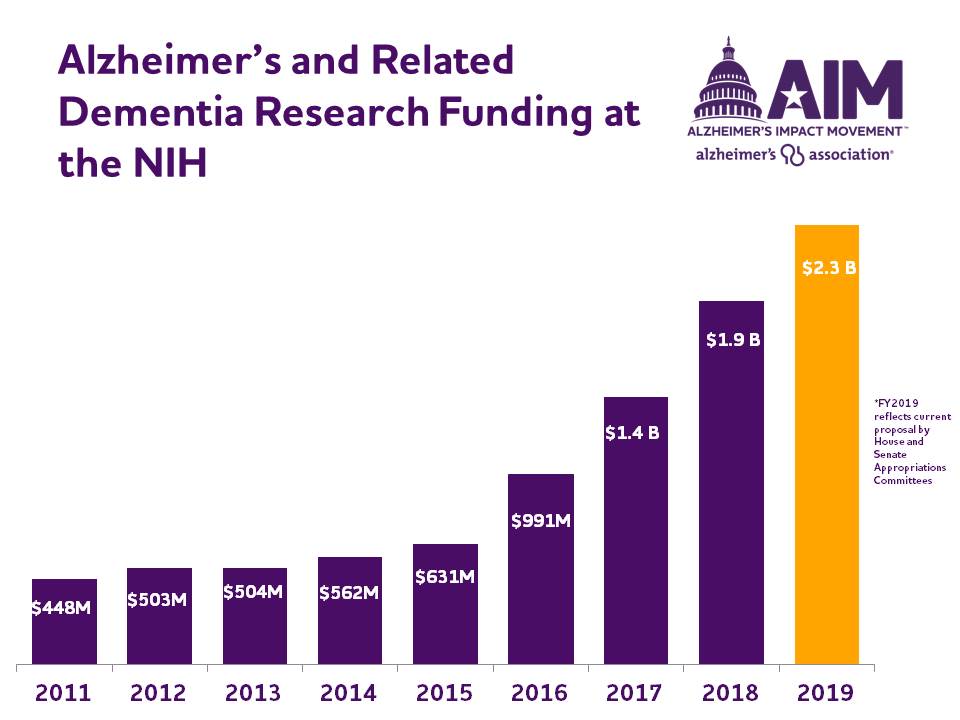Since Congress passed the National Alzheimer's Project Act (NAPA), Alzheimer's and dementia research funding at the National Institutes of Health (NIH) has quadrupled. These increases have enabled scientists across the country to explore new areas of research. And, as a result, researchers are advancing the understanding of the disease, exploring biomarkers, discovering potential ways to reduce risk, and are working to move promising therapeutic candidates and diagnostic tools forward into clinical testing.

Nowhere was this more evident than at the Alzheimer's Association International Conference (AAIC) in Chicago this week. Nearly 6,000 researchers from more than 65 countries shared their findings, providing new insights into Alzheimer's and dementia -- from potential risk factors, to possible preventions and treatments. This year featured more than 3,000 scientific presentations -- the largest in amount in the history of AAIC -- many of which received funding from the NIH.
Eisai and Biogen released additional data from the Phase 2 study of BAN2401 in early Alzheimer's disease. At AAIC, researchers reported results on several of the trial's secondary outcomes, including reduction of amyloid plaques and improvement of memory tests and activities of daily living, though the trial was too small to be definitive and more research is needed. The data is intriguing and we look forward to hearing the sponsors' plans for moving forward. Read the Alzheimer's Association full statement on these results here.
Results from the federally funded SPRINT-MIND study found for the first time significant reductions in the risk of mild cognitive impairment (MCI) and the combination of MCI and dementia through aggressive lowering of systolic blood pressure. The results of this large-scale, long-term clinical trial provide the strongest evidence to date about reducing risk of MCI and dementia through the treatment of high blood pressure, which is one of the leading causes of cardiovascular disease worldwide.
Another NIH-supported study reported at AAIC provides new information that may help us better understand why women are more likely than men to develop Alzheimer's. This first-ever large-scale epidemiological study in the U.S. of various aspects of reproductive history and dementia risk found a correlation between risk of dementia and the number of children, number of miscarriages, age at the time of first menstrual period, age at natural menopause, and reproductive period.
Another NIH-supported study looked at non-pharmacologic approaches to treating the non-cognitive symptoms of dementia. While the memory and thinking symptoms associated with the disease are the most well known, it is the behavioral and psychological symptoms of dementia that often cause the greatest caregiving challenges and are the leading causes for placement in assisted living or nursing homes. A study reported at AAIC found lighting may improve sleep and mood behavior in people living with Alzheimer's.
To learn more about the research presented at AAIC visit alz.org/aaic and please join us in asking Congress to increase Alzheimer's and dementia research funding at the NIH by $425 million this fiscal year.
As is clear from the research and theories presented by leading scientists at AAIC 2018: There is no shortage of ideas, only dollars, for addressing Alzheimer's and its devastating impact.
